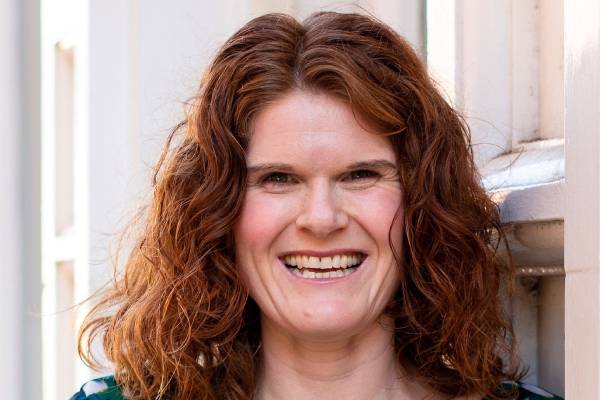Authored by Certified Business Psychologist Laura Howard. Certified Business Psychologist, Laura Howard, reflects on the webinar she recently delivered to ABP members. Below she outlines the main findings of her published research uncovering systematic barriers women face when being authentic as leaders. Importantly, she gives…
Dr. Peggy Marshall, CMBC, Global IOC Founder, Research Fellow University of Wales
Dr. Ursula Clidiere, CBC, Global IOC Faculty
Tuesday May 11th 2021
The continued if not increased need for business coaching in organizations is driven by rapidly changing business environments, development and retention of key talent, support for organizational learning, and engagement with all stakeholders. The presentation reviewed the impact of demographic changes in the workforce represented by an increasing redistribution of generational cohorts (GenZ, Millennials are entering while GenX, Boomers are remaining) on current business coaching practices with specific focus on business coaching practices such as leader/coach development approaches.
The session was offered by the Global Institute of Organizational Coaching, headquartered in the US with subsidiaries in Canada, Europe, and South Africa. Its business context is Coach/Leader development for Executive Coaching and Leadership Development, Team and Peer Coaching, and Coaching Cultures in Organizations.
The availability of reliable, robust research data in the field of leader/coach development for Millennials/Gen Z is, at this time, exceedingly sparse if not non-existent. This, in the context of the WABC (Worldwide Association of Business Coaches) which states that “the organization/business coach helps the client discover how personal characteristics, including a sense of self and personal perspectives, affect personal and business processes and the ability to reach objectives within a business context”, leaves many providers of coaching services or coach/leader development uncertain how to address evolving needs caused by demographical changes.
Demographical data extracted from a variety of sources such as McKinsey (2016), Sarraf (2019), Stainforth (2020), Sturt and Nordstrom (2016) were reviewed. In addition, similarities (flexibility, making an impact, and individual motivation) as well as differences (management style, team culture, and work motivation) between GenZ and Millennials were summarized based on same sources. Further, one of the very few research articles published on the Leadership Development for Mills/Gen Z- while reviewed- was considered to not satisfy the robustness required for evidence that would prompt any changes in coaching practices at this time.
Hence, questions arising for the presenters were whether (1) Can everyone in a generation be lumped together based on social theory (Strauss-Howe Theory suggests that historical events are associated with creating “generational personas” for the entire generation), (2) Do we know what each generation needs? And (3) How do we mitigate the tension as we coach or develop leaders of different generations?
McKinsey (2016) advised to create “a new workplace dynamic spurred by the high expectations of younger employees but meeting a larger need for more thoughtful relations between all workers and employees” and targets the five actions of building bridges with data, putting communication on steroids, developing cultures of mentorship, creativity in professional growth, and embedding flexible work into the culture.
The following considerations and recommendations were shared by the presenters as it relates to Individual Coaching in Organizations- (mainly Millennial clients at this time), (1) Integrate different needs for communication, inspiration and feedback into coaching, (2) Explore a hybrid of in-person meetings such as Zoom calls with in-between feedback via text or email could be a format for coaching, (3) Look out for research that empirically tests and applies theories about practice, (4) Avoid building coaching practices are simply based upon generational theory that lumps individuals into one large group, (5) Ask the client about their preferences during initial and subsequent conversations with the client.
Organizations – (1) Creating coaching cultures and shifting mindsets about labels for a specific group to focusing on the individuals and the needs of the individuals, (2) Ensure that current and emerging leaders have highly developed communication skills, (3) Create mentor relationship that begin when an individual enters the workplace and continues throughout the career of the individuals, (4) Establish rotation programs and leadership of temporary projects, and (5) Establish coaching programs for Millennials and Gen Zers in organizations via Advanced Development Programs, Reverse Mentoring, Peer Coaching, Team Coaching and a also, a University Curriculum.
While coach/leader development needs to be made more affordable/accessible to younger generational cohorts, there is a clear need for more research and applied theories. Until such is available, coaches are encouraged to research their own coaching practices and processes and determine the best fit for them as coaches while engaging in dialog and exchange in the professional coaching community, e.g., ABP, AoC, WABC, ICF etc.
In addition, the discourse reviewed the evolution of coaching generations – here not so much with the focus on younger generations but simply the intersection of yet another generational dynamic. The review offered a greater “map” developed by Elaine Cox, Tatiana Bachkirova, and David Clutterbuck (2104) which shows the structural elements of a coaching engagement (coach and client as individuals, coaching relationship and processes and context) placed on the map showing how the theoretical frameworks from neighboring fields such as psychology, education, social sciences, philosophy, and management/leadership sciences to name a few came together as basis for coaching.
In terms of evolution of the theoretical framework, an inventory list contained in the Cox et al (2014) article was mentioned as was highlighted that there is a diversity of coaching approaches allowing coaches to draw on the most appropriate techniques and models, last but not least to meet organizational and client needs.
A temporal depiction of coaching approaches was captured by Stelter (2010) in three generations which was shared as well. His way of depicting the evolution bases on “bundling” key concepts, or approaches for a given time span. His grouping of foundational concepts into generations, represents a process where generations build upon each other, augment each other, and/or exist next to each other which all in all shows the emergent, integrative spirit of the coaching community. An important take away is that the term “Generation” is not a hard coded term but simply captures a broad movement and increasing diversity of the coaching field, the field of researchers and practitioners and emerging key concepts. Whether this integrative spirit persists will show itself- many new approaches are emerging, research is on the way and positioning will occur in time.
Today, we find representatives from all coaching generations active in the field which, again, emphasizes the variety, evolution, and coexistence of approaches rather than the dominance of a few. An example of such co-existence was given for leadership development or management coaching, with the cognitive behavioral approach (Gen 1), the positive psychology approach (Gen 2), and Executive Reflection – basing on the narrative approach (Gen 3). All are active, though it was acknowledged that current practices and coach development approaches are mainly based on Generation 2 approaches while Generation 3 applies more at the Coaching Supervision angle and at this time, in very selective Executive Coaching settings. To summarize the generations portrayed by Stelter: 1st Performance/Goal/problem, 2nd- solution, opportunity, and 3rd- co-creative, narrative, reflective. As indicated, to date, all generations are practiced and represented.
In summary, on both generational fronts examined, the presenters stated the intent to closely monitor evolving research and their continued efforts to examine their current practices against such research that empirically tests and applies theories about practice.
References/sources used or mentioned:
Cox, E., Bachkirova, T. & Clutterbuck, D. (2014). Theoretical Traditions and Coaching Genres: Mapping the Territory. Advances in Developing Human Resources, Vol. 16 (2), 139-160.
Eyerman, R. & Turner, B. (1998). Outline of a theory of generations. European Journal of Social Theory, 1 (1), 91-106
Franklin, H. (2015). Coaching millennials leaders: Life stage versus the times we live in. International Journal of Evidence based Coaching and Mentoring, Vol. 9, pp. 63-76
McKinsey Quarterly, Millennials: Burden, blessing, or both? Retrieved on April 7 from https://www.mckinsey.com/business-functions/organization/our-insights/millennials-burden-blessing-or-both
Sarraf, A.R.A. (2019). Coaching in Multi-Generational Organizations. Business and Economics Journal, Vol 10, Issue 1
Stainforth, C. (2020). The Future of Coaching & Leadership. Presented at the Annual Conference of the Association for Coaching, Coaching in the Workplace- Performance. Culture. Mastery
Stelter, R. (2014). A Guide to Third Generation Coaching- Narrative Collaborative Theory and Practice. Springer.
Stelter, R., & Law, H. (2010). Coaching- narrative-collaborative practice. International Coaching Psychology Review, Vol. 5, No. 2.
Sturt, D. and Nordstrom, T. (2016). Generational Differences: When They Matter, And When They Don’t. Forbes



